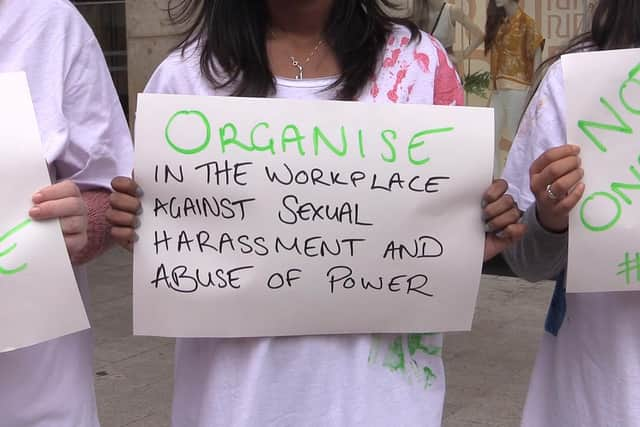New law will force employers to act over workplace harassment – Christine Jardine
For the frightening number of young women, and men, who fear their careers will be blighted if they speak out against workplace harassment, comes a bright beam of hope from parliament. After months of wrangling with government MPs, the snappily titled Worker Protection (Amendment of Equality Act 2010) Bill 2022-23 passed a major hurdle and can now go through its final stages in October.
The Private Members Bill, proposed by my Lib Dem colleague Wera Hobhouse, and which I worked on the committee for, will make employers liable for ensuring their staff are not harassed. Gone forever will be the days of chats ‘on the QT’ to warn chaps that someone had taken offence and maybe they should be careful, or quietly moving someone on or to another department to ‘remove a problem’. Once this Bill becomes law, employers will be legally responsible for ensuring that action is taken against offensive or unacceptable behaviour or they too could face sanctions.
Advertisement
Hide AdAdvertisement
Hide AdI have no doubt there will be those who will invoke the current popular rhetoric to dismiss this as ‘wokery’. I can almost sense the eye-rolling. But for many of us who have endured workplace harassment or had to pick up the pieces for friends who spoke out and then felt shunned and their careers undermined, this is a step which has been far too long coming.
Any doubt that there continues to be a serious problem was surely shattered with a recent report claiming as many as two-thirds of female surgeons said they had been the target of sexual harassment, some even while they had been undertaking surgery. It beggars belief that anyone could think that any form of harassment of anyone in an operating theatre is acceptable. Apparently they do.
I know from my own experience that far too many men, and men are still the main culprits, think it’s acceptable to man-handle colleagues. To use the power dynamic in a workplace to make themselves feel better. To talk over younger colleagues, often female or from minorities, to make them feel dismissed or marginalised, then action their ideas when they come from someone else. Or, and this is perhaps my favourite, place a casual arm around the shoulders of a female colleague when introducing them to clients or new management to make them feel belittled and demonstrate your superiority.
Politicians, sadly, are not exempt. We have had examples only too recently of MPs sanctioned for inappropriate sexual behaviour towards staff. Perhaps that is why Wera’s bill had so much cross-party support that even members of the government have been prepared to help get this bill across the line.
And it all started with a ballot in which Wera chose the number 461 for her ticket. She was the 461st woman elected to parliament. I was number 465. There are many more women in parliament now, in all parties, and with this bill we used our common voice to say: “Enough.”


No more excuses and “oh you’ve misunderstood what I was saying”, or quietly brushing someone’s bad behaviour under the carpet only for them to do it again. No, finally, those days will be consigned to the past. Mark October 20, 2023, in your diary.
Christine Jardine is the Scottish Liberal Democrat MP for Edinburgh West
Comments
Want to join the conversation? Please or to comment on this article.